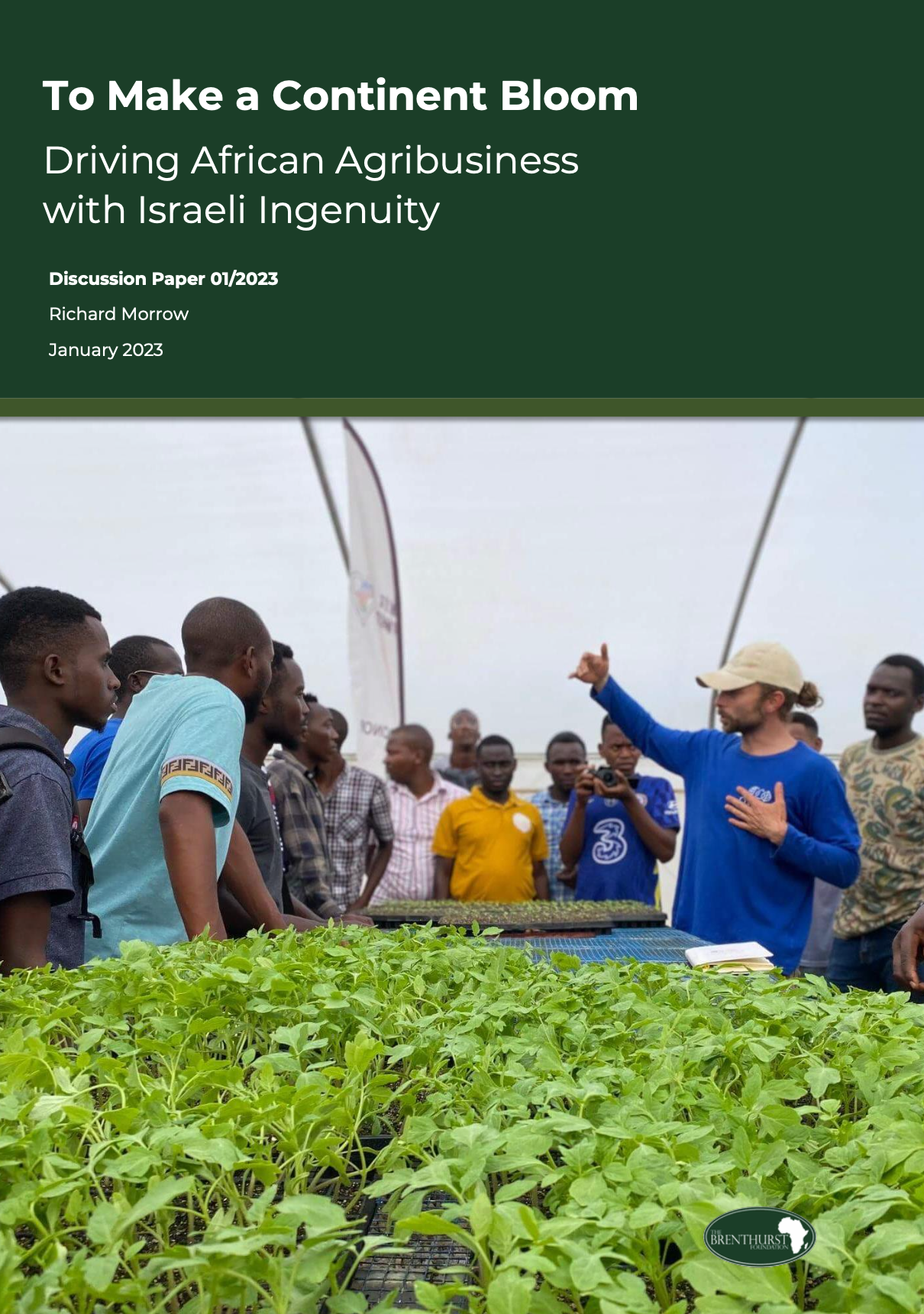Publications
To Make a Continent Bloom: Driving African Agribusiness with Israeli Ingenuity
Home to 60% of the world’s uncultivated arable land and over 30 million smallholder farmers who are not engaged in any commercial activity, the vast majority of whom survive on less than $2 a day, Africa urgently needs to catalyse growth within its agricultural sector and transform it from one which is rooted in subsistence farming to one that is geared towards sustainable agribusiness. Part of this transformation will require African governments to partner with stakeholders who have the requisite skills and experience in developing successful agribusiness economies. One such partner is Israel who, on previous occasions, has played an integral role in the transfer of skills and knowledge to Africa.
Many look towards Israel for its sophisticated technologies and systems, believing that the solutions to Africa’s developmental challenges lie in cutting-edge technologies and equipment. This belief is understandable because of the tremendous success Israel has witnessed domestically, in part thanks to technological innovations. But if Israel’s agricultural revolution is to be understood as a marathon being run, many people look only at the final kilometre which is Israel’s sophisticated system today. What they fail to look at are the many kilometres already run which have resulted in Israel’s current position. Here is where the basics matter: access to inputs, training and education, and market linkages. To this end the role of Israeli innovation and expertise in Africa is not about artificial intelligence or machine learning. At least not yet
Africa’s agribusiness transformation will be a gradual process and the key to its development will be a multi-stakeholder partnership which prioritises best practices which in turn lead to higher yields – this is where Israel can play a vital role. Failing all of this, agriculture in Africa will remain rooted in subsistence farming, reliant on haphazard government intervention and piecemeal initiatives from private sector actors and donors.



